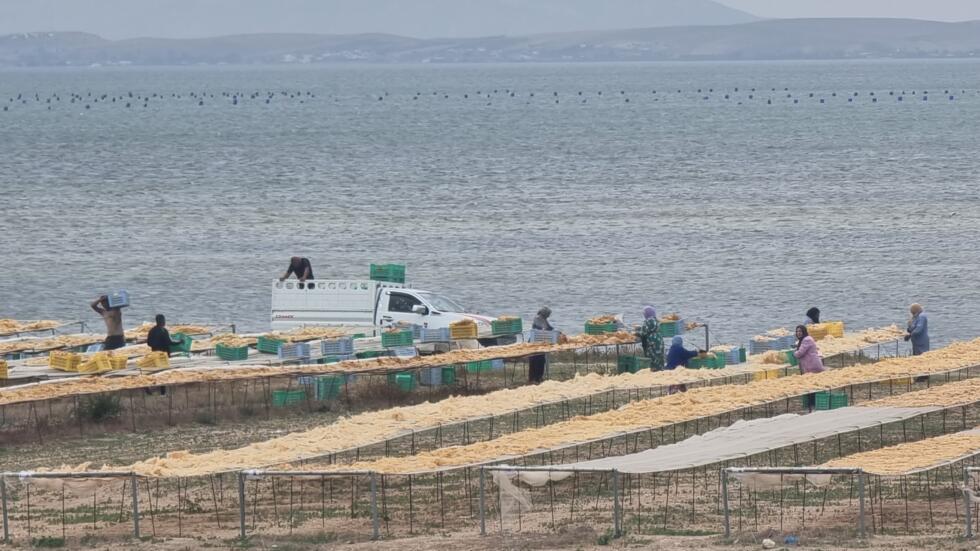In the Bizerte Lagoon, in the northwest of Tunisia, a Franco-Tunisian company cultivates and transforms red algae into plant-based gelatin. The project, funded by French and Kuwaiti investments, took thirty years to come to fruition, allowing for environmental impact studies to be completed. Today, Selt Marine is expanding rapidly: 8 million euros will be invested in the next two years to increase production in Tunisia and elsewhere in Africa.
By our correspondent in Tunis,
It’s not the sound of the waves that resonates in the small cabin facing the Bizerte Lagoon, but the hands of women carefully washing algae in large tubs of water. “I clean, I wash thoroughly, and then the algae are dried. Once that’s done, the fishermen bring us a new stock from the sea, and we repeat the process,” details Mongia Thabet, 55, who has been performing this task daily for nearly seven years.
Dried Under the Tunisian Sun
The algae dry under the sun on large tables, turning white through this natural process. This artisanal method distinguishes their production from others worldwide. “Most of our competitors, if not all, use peroxide, which involves chemicals. Since the company was created, we have been bleaching with the Tunisian sun,” explains Mounir Boulkout, the founder of Selt Marine. “And this whiteness is a mark of quality for our customers.”
Emulsifier or Plant-Based Gelatin
On an 80-hectare marine concession, Selt Marine cultivates and transforms red algae without using any chemicals. In the sea, the algae’s reproduction is controlled using tubes and ropes where the algae grow, then collected by fishermen without any loss. Nearly 10,000 tons of red algae are cultivated annually.
The finished product is sold to large industrial groups that use it as an emulsifier or food-grade gelatin. “Boulkout, in Arabic, means ‘the one who gives food,’ so I feel a bit of an obligation!” jokes Mounir Boulkout. “In most processed products, there are ingredients, additives, that aren’t always very healthy or plant-based. We produce a plant-based product with an ecological process and virtues.”
Recreating Biodiversity
Algae production helps recreate marine biodiversity and attracts fish and shellfish back to an area affected by overfishing and climate change. “When I arrived in 1995, we collected and found huge amounts of algae in July and August,” recalls the CEO of Selt Marine. “That’s no longer the case. There’s nothing left because about three or four years ago, the Mediterranean Sea warmed by 5 degrees during the summer.”
The company mainly operates from October to June to adapt and also manages concessions in Mozambique and Zanzibar.
Source: RFI


